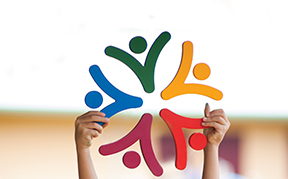
Recently I was reviewing a difficult business situation with one of our company’s top problem-solvers. The challenge he agreed to tackle was similar to another he had turned around, and I asked him if his approach was likely to follow the same course. He is a thoughtful fellow with strong character and an abundance of pragmatism in his toolbox. He suggested he would focus without excuse or interruption on the situation with objectivity, creativity, and community.
“It sounds like you’re leading with empathy,” I said.
“If I understand what motivates the people I need to help this team realize its potential, then I can help them understand how critical they are to the solution,” he answered. “They have to believe we all can win together, which starts with me understanding what winning means to them.”
The two of us agreed that embracing empathy didn’t mean letting down standards, compromising expectations, or being less demanding of excellence. It meant listening before acting, considering perspectives beyond our own before being decisive, and building bridges where shared values around attaining goals became foundational.
Sometimes the most complex concepts come down to a simple idea. In this case, that idea was about caring for the talented people who would join us in our work to truly align their aspirations with our success.
Once again, that sounds like empathy. It occurred to me how broadly that notion applies to so much that is happening around us.
The Maui wildfires have been devastating. I feel a particular connection to this community because I spent some time in the Lahaina area in my younger days. The losses people have suffered are impossible to quantify. While the news reporting has done an adequate job of conveying the expanse of destruction, we know that all too soon the news cycle will pass and the next natural or manmade calamity will capture the headlines.
The people of Maui will be in need for years, rebuilding their homes and infrastructure, but also attempting to make some sense of the senseless and find a path to healing. Many of us are donating to the disaster relief effort now, but what happens in six months or a year when only the initial steps have been taken to recovery? Will our empathy remain?
Thousands of writers and actors have been walking the picket lines for months, hoping their unions will find a way to reach an agreement with the entertainment studios that employ them. I have also been down this path, again in my younger days, and I know that no strike goes on forever. Both sides will find a way to settle the disputes over participation in earning power and critical artistic rights threatened by emerging technology, but I wonder if this extended work stoppage could have been abbreviated by the application of empathy in the minds of those negotiating.
I don’t think that’s an unnecessarily idealistic approach. The business loss of a shutdown is similar to the collapse of a family budget that may never be recovered by the agreed terms of a new operating model. Opportunity cost is often lost forever. Could empathy not reveal that dollars lost by all sides during a stoppage might not be worth the long wait for a mutually unsatisfying resolution?
I think a lot about our customers these days trying to manage their family budgets. For so many of them, value in the products they buy is less about being a clever shopper than making necessary tradeoffs in how they stretch a paycheck to the end of each month. The often obtuse reflections of the Federal Reserve about balancing interest rates with inflation can provide little guidance and less comfort to families wanting to provide the best they can for themselves with the precious dollars and credit seldom adequate for the kind of broad prosperity our economic policies purport to address.
A little empathy here could go a long way, not in the political proclamations of those who seek their own gains, but in comprehending the underlying engine of what constitutes value creation in business. A satisfied, well-treated customer is at the heart of all economic success. That may also sound idealistic, but any tone-deafness in remembering how bills at a company get paid may cause that company to unwind ahead of its time. Empathy for customer needs may not be item one on your weekly staff agenda, but there are few other success factors more easily understandable or ripe for reinvention
Empathy in problem-solving, empathy for those suffering sudden devastation, empathy in negotiation, empathy in policy-making and business enterprise — starting to see a pattern? Take all the noise and polarization that is blocking success and start by looking at the conflict through the eyes of another. Perhaps the path to innovation will take a sudden turn in a more promising and mutually beneficial direction.
_______________
Image: Hawaii Community Foundation




